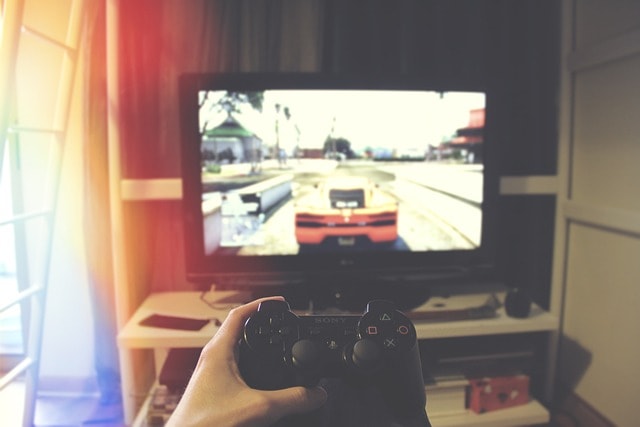Midnight livestreams, cryptic shrines, and a new algorithm raise the stakes of 2020’s most controversial craze
TikTok hasn’t slept since the clock struck 12:01 AM on April 20. That was the minute a stealth update renamed the original “Randonautica” to Randonautica Reloaded and quietly pushed Version 2.0 onto every phone that still had the dusty pandemic‑era adventure app installed.
Within hours, #RandoReload leapt past 14 million views, blown open by a shaky vertical video from a Houston senior who followed the new “Quantum Flux” coordinates and found a moss‑covered culvert humming with candlelight, red string, and somebody’s half‑burned journal pages. She streamed the whole discovery on Twitch, screamed when a motion‑activated speaker whispered “WELCOME, SEEKER,” and racked up 2.3 million plays before she even made it back to her car. By sunrise, copycat explorers from Sydney to São Paulo were dropping off homework to chase their own coordinates, every livestream promising “ALTARS OR IT DIDN’T HAPPEN.”


The creators of Randonautica, who designed the app based on principles from chaos theory, have enabled users to explore random locations and report their experiences, making the app a tool for co-creating explorative journeys.
Introduction to Randonautica
Randonautica is a quantumly generated adventure game that uses random coordinates to take users on a journey of true randomness. Designed to help users break free from habitual and deterministic patterns in their everyday life, the app offers a unique opportunity to discover new and exciting experiences. By generating completely random coordinates, Randonautica encourages users to explore the unknown world around them, making every outing an unexpected adventure. With its user-friendly interface and emphasis on random exploration, Randonautica has quickly become a popular app among those seeking to inject a sense of wonder and novelty into their lives. Whether you’re looking to uncover hidden gems in your neighborhood or embark on a spontaneous journey, Randonautica promises to deliver a fresh perspective on the world around you.
How Randonautica Works
Randonautica operates by harnessing both pseudo and quantum entropy sources to generate completely random coordinates for users to explore. Before setting off, users can set their intentions, which can lead to a statistically improbable distribution of random points, creating a very malleable reality. This process allows users to experience the real magic of random exploration, discovering new areas in their neighborhood, town, or city, and connecting with like-minded adventurers across the globe. The app’s generation process is closely related to the user’s intention, fostering a heightened sense of awareness and presence during each journey. By using random coordinates, Randonautica helps users break free from deterministic patterns, offering a fresh and unpredictable way to explore the world.
The Role of Joshua Lengfelder
Joshua Lengfelder, the CEO and co-founder of Randonautica, has been instrumental in the development of the app. His journey began when he discovered a Telegram bot called Fatum Project in a fringe science chat group, which inspired him to create a similar bot using the same code. This bot generated random coordinates, laying the foundation for what would become the Randonautica app. As a seasoned expert in the field of quantum entropy, Lengfelder has shaped the app’s unique approach to random exploration. His vision for Randonautica is to build a community of users who share their experiences and discoveries, providing a platform for people to explore the world in new and exciting ways. Under his guidance, Randonautica has grown into a popular app that continues to captivate users with its promise of unexpected adventures.
From su1tcases to shrines: why the reboot hits harder
If the name rings a bell, it should. The first Randonautica blew up in 2020 after Seattle teens stumbled onto a suitcase containing human remains; police later confirmed the grisly find was unrelated to the app, but the damage was done. Downloads spiked to 12 million in a month, mainstream outlets branded the game a “quantum Ouija board,” and bored Gen Zers spent lockdown wandering into storm drains and witchy thickets. But the hype faded as the world reopened—until now.
The Reloaded overhaul claims a “true quantum entropy stream” with double the precision of the original pseudo‑random number generator. In practice that means the coordinates feel creepily specific: suburban cul‑de‑sacs lit by a single streetlamp, rusted fence gaps exactly four planks wide, or—in chilling new clusters—hand‑built altars arranged as if waiting for guests. The devs swear they never map private property, but the Flux engine loves forgotten easements, abandoned fairgrounds, and country‑road pull‑offs that only see tire tracks after dark. “It’s like the app knows where our parents would forbid,” one Colorado user laughed on Discord, “and that’s exactly where it sends us.”
Live, unfiltered, and monetized
Unlike 2020, today’s randonauts have ring lights and revenue targets. Twitch affiliate Jessi Spinechill Marte hit 50,000 concurrent viewers by promising she’d follow every coordinate until sunrise or until a police cruiser arrived, whichever came first. Her second waypoint dumped her behind a shuttered milk‑processing plant. There, nestled under cracked concrete, she found a doll’s head impaled on a florist’s pick, its mouth stuffed with sage. The chat erupted; bits rained down; sponsors DM’d before the stream ended. This is the new loop: Quantum Flux drops the pin, clout‑hungry teens chase the scare, audience tips bankroll the gas, repeat.
So who’s staging the candles?
The biggest mystery isn’t how the algorithm works—it’s why so many altars now exist where no one remembers building them. Some users swear they’re ARG set pieces planted by the developers to keep hype alive. Others insist local occultists co‑opted the app and built shrines at statistically popular coordinate densities. The most paranoid theory claims the Flux engine actually learns hotspot aesthetics from user footage and iteratively pushes future explorers toward similar vibes, effectively crowdsourcing its own nightmare fuel.
These altars often appear in what users call ‘blind spots’—random points intended for the exploration of unknown aspects of the world around us. These blind spots encourage a departure from habitual patterns, leading to unexpected experiences and serendipitous discoveries.
When pressed, co‑founder Joshua Lengfelder told a tech podcast, “We don’t lead people to anything illegal or dangerous. If objects appear, that’s synchronicity, not staging.” The host laughed, then played compilation clips of reloaders sprinting from gunshots in the woods.
Authorities issue fresh warnings—and see zero slowdown
Houston PD has already asked parents to “strongly discourage” late‑night Randonautica sessions. Idaho State Police reminded fans that trespassing remains a misdemeanor even if your phone told you to hop the fence. Edinburgh’s city council—where gothic graveyards are now dotted with new wax drippings—is considering after‑hours patrols. Yet the suction power of viral terror is stronger than every official statement. Google Play rankings show Randonautica Reloaded peaking at #7 overall, outranked only by Meta’s Threads and food delivery apps feeding the same teens sprinting through the night. Android Apps on Google Play
The new features driving the frenzy: random coordinates
Quantum Flux Mode: replaces the old “anomaly” points with “void,” “echo,” and “fate” tags. Fate points, users claim, lead to the most cinematic scenes—think ivy‑choked chapel ruins with a single black‑flame candle still warm.
SoulPrint Integration: the app now requests a half‑second microphone sample “to gauge emotional baseline” and supposedly tailor coordinate selection. Privacy lawyers are already drafting blog posts, but teenagers happily scream “TAKE MY SOUL” into the mic if it means a scarier journey. Importantly, the app does not collect any user data, ensuring complete privacy and transparency in how user interactions are handled.
Stream Sync: a settings toggle that overlays a share‑code on your video feed so fans can jump to a fresh set of coordinates in real time. This crowdsourcing has created lightning‑fast daisy chains: one Florida boy found a ceramic mask nailed to a pine at 11:08 PM; by 11:45, someone in Arizona was standing at a sister mask pinned to a cactus.
Community and Forum Discussions
The Randonautica community is a vibrant and active group of users who share their experiences and discoveries on various platforms, including Reddit, Telegram, and Discord. The official subreddit, r/randonauts, serves as a hub for users to discuss their journeys, share tips and advice, and connect with fellow Randonauts. Guided by the 9 Tenets of Randonauting, which emphasize mindfulness, sincerity, and respect for the environment, the community fosters a supportive and collaborative atmosphere. By sharing their experiences and coordinating their efforts, Randonauts contribute to a deeper understanding of the app’s capabilities and the potential of random exploration. Whether you’re a new Randonaut or a seasoned expert, the community is an invaluable resource for learning more about the app and connecting with like-minded individuals.
The psychology of quantum dread and quantum entropy
Dr. Allie Nguyen, a behavioral scientist who studied the 2020 boom, calls Reloaded “Pokémon Go for the collective shadow.” She says the thrill taps the brain’s novelty circuit, but the occult packaging cranks anxiety high enough to produce a dopamine/epinephrine cocktail that keeps kids hunting for the next altar. Throw livestream metrics into the mix and you have “a self‑reinforcing superstition machine that pays cash.”
Additionally, random explorations with the Randonautica app can lead to heightened awareness, fostering a deeper presence and mindfulness. This heightened awareness enhances one’s observation and perception of reality, offering a break from daily routines and a stronger connection to one’s surroundings.
Bodies, rumors, and urban‑legend escalation
No deaths are linked to Reloaded—yet. Still, rumors multiply faster than the app pushes updates: someone found a goat skull wired to a power bank in Maine; a UK pair swear they heard Latin chanting from a tool shed; Reddit mods locked a thread alleging a “crushed velvet figure” emerging from a cornfield after midnight. Police confirm every story so far breaks down into pranks, Halloween props, or exaggerated noises on shaky video. But viewers hungry for proof of real‑world horror rarely stick around for mundane explanations.
Devs double down on “mind‑matter” marketing
Randonautica’s official blog posted a 900‑word essay asserting the Quantum Flux engine leverages vacuum‑state entropy and “observer‑interference coupling” to prove consciousness steers reality. Skeptics call it tech‑bro mysticism; teenagers call it gospel. When the blog added a quote from Crowley—“In this labor the chief danger is that the Aspirant may bring his own phantoms with him”—downloads spiked again. The dev team seems to understand that the weirder the promise, the higher the engagement.
There is growing evidence that quantum entropy and the mind’s intentions can influence reality, suggesting a connection between mental focus and the manifestation of experiences during random explorations.
Could Reloaded actually be an ARG? The randonautica app explained
A growing Telegram channel of puzzle‑hunters is convinced Randonautica Reloaded is just the onboarding gate to a sprawling alternate‑reality game. They point to repeated symbolism—triangular sigils burned into plywood, altars oriented precisely north‑east, coordinates that trace pentagrams on regional maps. Theorists insist a “Grand Summoning” event will trigger once enough fate‑points are visited worldwide. The devs deny everything, but they also sell limited‑edition enamel pins shaped like that same triangle. Conspiracy or marketing? The line’s too thin to measure.
Parents vs. FOMO
Mom‑groups on Facebook are scrambling for GPS blockers and curfews. Yet the #RandoReload highlight reels—night‑vision faces lit green, breath clouds swirling around trembling ring lights—look exactly like the found‑footage thrillers that stream at #1 on Netflix every other month. Telling teens to stay home only confirms the adventure is worth sneaking out for.
The bottom line
Apps come and go, but fear is sticky, and Reloaded wields it with surgical precision. It offers something TikTok trends and Discord servers rarely deliver: real‑world mystery you can touch, film, and monetize. Whether the candle‑lit altars are developer Easter eggs, occult graffiti, or a mirage stitched together by algorithmic destiny doesn’t really matter. What matters is that each flickering shrine feels personal—placed there for you—and the internet rewards you for finding it first.
Users often report a lasting effect from their intentions, leading to significant changes in their personal reality and observations while navigating to random locations.
So charge your phone, prep your apology text for Mom, and hit “Generate.” Just remember: the next waypoint might hand you viral gold—or a padlocked gate, a motion sensor, and a squad car willing to test whether quantum randomness counts as a legal defense. Adventure is back on the map, and it has candles burning for anyone brave—or crazy—enough to follow the glow.
Follow Exorcista for more stories and rituals!











